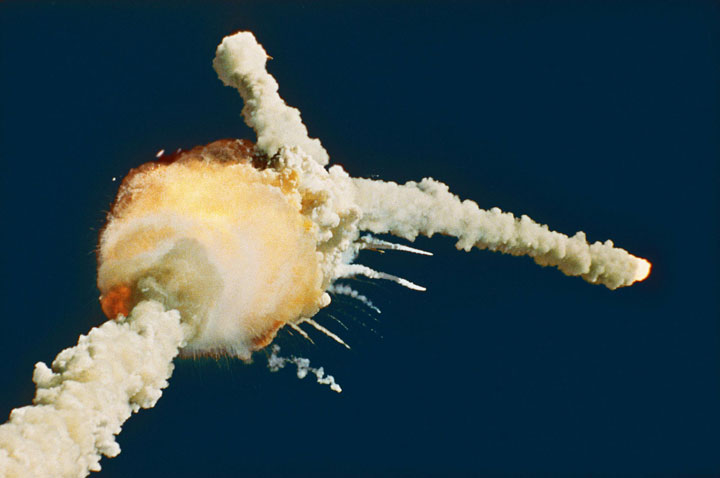Watch the video above: SpaceX’s Falcon 9 rocket exploded just two minutes after liftoff.

TORONTO – It was the third failed attempt to get supplies to the space station in eight months. And while the rhetoric of “space is hard” is flooding social media, the loss of SpaceX’s Falcon 9 rocket with the Dragon spacecraft on board, is reminding the general public that space is anything but routine, despite more than 50 years of spaceflight.
In October 2014, Orbital Sciences’ Antares rocket exploded shortly after liftoff. Then, this past April, the Russian Progress spacecraft failed to dock with the International Space Station.
“I think this points out the difficulty and challenges we face in spaceflight,” said Bill Gerstenmaier, associate administrator of NASA’s Human Exploration and Operations Mission Directorate. “There really is no commonality in these three events, other than the fact that it’s space and it’s difficult to go fly.”
READ MORE: WATCH – SpaceX rocket explodes while heading to space station
Mike Suffredini, Manager of the International Space Station Program, said in a news conference on Sunday afternoon that NASA had anticipated a loss of spacecraft at some point. But, “having three this close together is not what we had hoped for.”
Losing spacecraft — or having spacecraft that suffer some kind of anomaly — isn’t anything new. In the early days of the manned space program, three Apollo 1 crewmen were killed when their capsule caught fire on the launch pad. Then, years later, Apollo 13 taught engineers that even with a malfunction, you could get a crew home safely.
The years ahead proved even deadlier than the early days of spaceflight.
During the shuttle program seven astronauts were killed when Challenger blew up 73 seconds into its flight. In 2003, another seven astronauts died when the shuttle Columbia disintegrated over the U.S. upon re-entry.
For those in the space industry, losing a spacecraft is an eventuality, not a possibility.
Sunday’s launch to the space station was SpaceX’s seventh crew resupply mission. More than 2,350 kg of station cargo including the first docking port that prepares the ISS for future commercial crew capsules, a water filtration system and a new spacesuit were on board, as well as several science experiments (including one from students who had lost their first one in the Antares rocket explosion). Thankfully, it was not a manned launch.
Since its 2010 inaugural launch, SpaceX has had 18 successful missions.
However, some feel that it was bound to happen at some point.
“I’ve been waiting for this,” Randy Attwood, space historian and executive director of the Royal Astronomical Society of Canada said. “No one has an unblemished record.”
“The people who do this day-to-day, everyone’s been waiting for this because it’s bound to happen. You don’t know when, you don’t know how, but it’s going to happen.”
Mike Gruntman, professor of astronautics at the University of Southern California agrees.
So are these three losses a blow for the space program?
“If it happens again in a year, I’d be concerned,” Attwood said of the loss of the Falcon 9. “But if it happens again in three years, not so much.”
And while they work on determining the cause of this accident, they may find other systems that they can strengthen, Gruntman said.
“It’s not a big deal. It’s minor, minor in my view. You would expect this at this stage of any space launcher,” he said. “These things can happen and they do happen.”
READ MORE: Boeing, SpaceX rides to space will save NASA millions
Stopping the space program isn’t something that is a real possibility. There is a billion-dollar space industry across the United States and there are many countries that are willing to step in quickly if the U.S. steps out. In fact, many criticize the U.S. for falling behind countries such as China and India that have their eyes set on the moon.
It’s all a matter of learning from the mistakes to avoid costlier — and deadlier — mistakes in the future.
“I think it’s important for all of us to realize that through these failures and through these events we can learn more and we can come back stronger and we can get prepared to keep pushing the envelope as we move into space,” Gerstenmaier said.
“I think sometimes people think it’s easy and that it seems routine. That’s when we get in trouble. It is not easy and it’s not routine.”


Comments